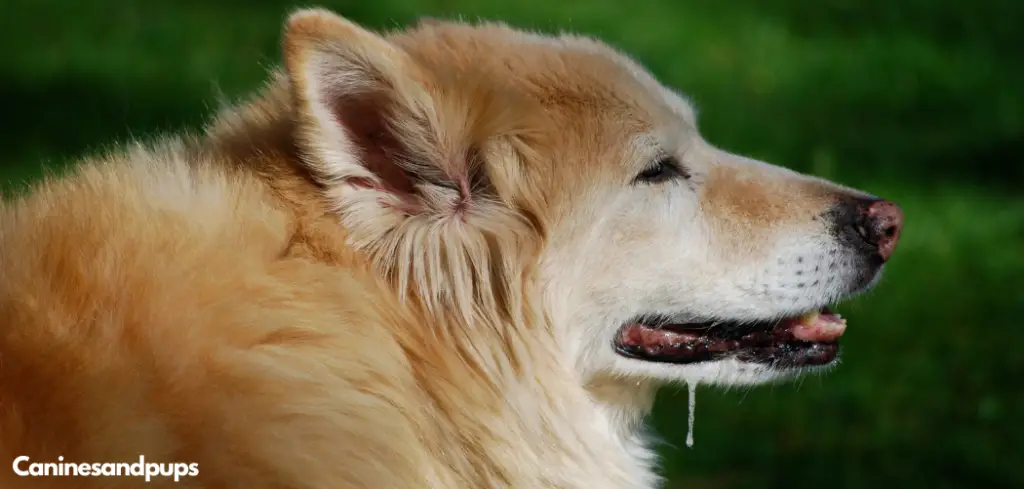When a dog’s stool suddenly contains mucus, it can leave pet owners feeling alarmed and uncertain. Stress doesn’t just affect a dog’s emotions — it can trigger visible changes in their body.
We outline reasons why mucus in a dog’s poop from stress happens, what you can do at home, and when to seek veterinary help.
Table of Contents
Mucus in Dog Poop from Stress — Why It Happens
Stress has a powerful effect on a dog’s gastrointestinal system. When a dog is anxious, their body releases hormones that can disrupt normal digestion, causing the intestines to produce extra mucus as a protective barrier. Situations like boarding, travel, loud noises, or even household changes can trigger this response.
In some cases, stress combines with underlying conditions such as dietary intolerance or colitis, making the mucus more noticeable.
While occasional stress-related mucus may pass quickly, persistent or severe changes warrant closer attention.

Common Causes of Mucus in Dog Poop from Stress
Anxiety and Nervousness
Stress from separation anxiety, loud noises, or new environments can directly affect gut function. The intestines may become inflamed and produce more mucus as a response to irritation.
Owners might notice their dog pacing, whining, or hiding before the stool changes occur.
While this may improve once the stressor is removed, repeated anxiety episodes can create ongoing digestive upset.
Read more: What Does Yellow Mucus in Dog Poop Mean?
Sudden Environmental Changes
Dogs thrive on routine. Moving homes, boarding, or even rearranging furniture can be unsettling. This disruption often causes gastrointestinal stress, resulting in mucus-coated stools.
Dogs under environmental stress may also have softer stools, decreased appetite, or more frequent bathroom trips.
Dietary Stress and Changes
Introducing new foods or treats during stressful events can overload the digestive system.
The combination of emotional stress and dietary change can lead to irritation of the colon, where mucus is produced.
This is especially common in dogs with sensitive stomachs or food intolerances. Owners may notice loose stools along with the mucus.
Stress-Induced Colitis
Colitis is inflammation of the colon, and stress is a well-known trigger. In these cases, mucus in dog poop from stress is often accompanied by diarrhea, urgency, or small amounts of blood.
Dogs may strain to defecate, and the condition can appear suddenly after a stressful event such as a car ride or fireworks.
Underlying Illness Exacerbated by Stress
Sometimes stress doesn’t directly cause the mucus but worsens existing conditions. Dogs with irritable bowel disease (IBD), parasites, or infections may flare when exposed to stress.
In these cases, mucus in the stool is more severe and longer lasting, and the dog may also show lethargy, weight loss, or vomiting.
What to Do If Your Dog Has Mucus in Their Poop from Stress
If the mucus seems mild and clearly linked to a stressful event, supportive care at home may be enough. Give your dog a calm, quiet environment and limit exposure to the stressor whenever possible.
Keeping a consistent routine for feeding, walking, and bedtime helps reduce anxiety-related flare-ups.
A bland diet such as boiled chicken and rice for a day or two may soothe the digestive tract. Make sure your dog stays hydrated, as stress and digestive upset can increase fluid loss.
Gentle exercise and enrichment activities, such as puzzle toys, can also lower stress and support recovery.
For dogs with recurring stress-related digestive issues, consider working with a veterinarian on long-term stress management strategies. This may include probiotics, dietary adjustments, or anxiety-reducing techniques such as desensitization training.
When to Call or Visit Your Vet
If mucus in dog poop from stress continues for more than a couple of days, it’s best to contact your veterinarian. Stress may be a trigger, but chronic or severe mucus often points to other underlying issues.
Seek veterinary care right away if you notice blood in the stool, frequent diarrhea, vomiting, or refusal to eat. These could indicate infections, parasites, or inflammatory bowel disease rather than simple stress.
Puppies, senior dogs, and dogs with pre-existing health conditions are especially vulnerable and should be evaluated sooner rather than later.
If your dog appears very lethargic, dehydrated, or in pain, don’t wait. Emergency veterinary care may be needed.
Read more: Clear Mucus in Dog Poop but Acting Normal (Here’s why)
Key Takeaway
Mucus in dog poop from stress can be unsettling, but in many cases it reflects a temporary digestive response to anxiety or change.
Still, it’s important not to dismiss it entirely, as mucus may also signal illness. Provide your dog with comfort, stability, and supportive care, but monitor closely for any signs of worsening symptoms.
If the problem doesn’t resolve quickly or is paired with blood, vomiting, or lethargy, a veterinary visit is essential. With care and attention, most dogs recover well, and ongoing stress management can help prevent future flare-ups.
